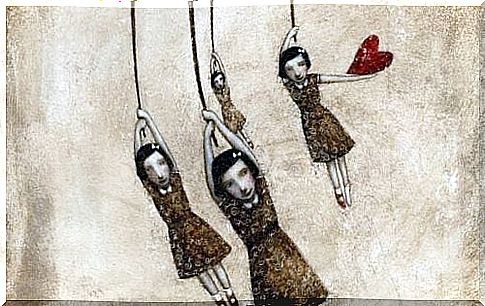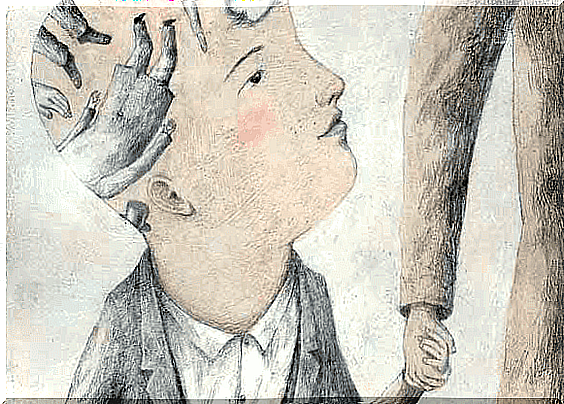When You Are Trapped In A Loveless Emotional Age

Lack of love is something that really leaves a wound, especially at certain ages. But sometimes it has such an impact that you end up getting caught up in something called a loveless emotional age . In other words, the lack of affection and love prevents you from developing and you will not be able to move on until you are healed.
The concept of “maturity” is basically nothing more than that, a concept. In a practical sense, we all have many different ages within us. Some of them stand out more, but the others are there too. It is really lucky for us because it helps us to enjoy things with childlike joy while dealing with problems of adult wisdom.
But there are also certain circumstances that can leave you at a certain age. You will usually be bound to a loveless emotional age if you do nothing about the problem.
It may even have its roots during your early childhood. If that is the case, even if you are over the years, you may have the same emotional age as the frightened, hurt child you once were.
The first encounter with loveless emotional age
When you are young, almost any experience will have a big impact on you. It is a part of life when you lay the groundwork for who you are and who you want to be. That does not mean you do not need affection later. It just means that it is absolutely necessary in your early years.
When a 1-2 year old child does not get affection, the first thing they lose is their trust. Children always expect their parents or those who take care of them to take care of their needs.
Sometimes it does not happen or it does, but along with rejection and aggression. This will probably make it difficult for the child to trust people from then on. It can even make it hard for them to trust themselves.

Lack of love, autonomy and independence
When one is about 2-3 years old, children formally begin on their path to autonomy. The biggest part of this part of their path is potty training.
At these ages, loving parents or guardians will promote autonomy with love and without haste. They will not ask their child for anything that is outside of their level of development or learning abilities.
Nor will they slow down their child’s progress by doing things for them when they can do them themselves. Love should never lead to addiction and autonomy should never lead to renunciation.
Children usually stay on this path towards independence from 3 to 6 years, although there are never exact ages or dates when it comes to people. Either way, it is always at this age that they really start exploring the world.
Once a child is loved, they will go on this journey without fear. If they are not, they will probably feel insecure and scared, even if there is nothing scary or dangerous out there.
When they are old enough for school, children will develop a love of work and efficiency. That is, if they have a loving support. If they do not have it, they will do their schoolwork with a sense of inferiority.

The effects in adulthood
Usually, you realize that you are trapped in a loveless emotional age when you see certain personality traits as an adult and do not really know where they came from. You can usually not change yourself, even if you are convinced that it is necessary. Some features include:
- Insecurity, discouragement, timidity.
- Problems confirming yourself, knowing what you want, and expressing how you feel.
- Difficulty setting goals and pursuing them because you have more fear than hope.
- Passivity in all areas of life, including your love life.
- Not able to enjoy things.
So what can you do? It is normal to heal a wound caused by lack of love. But it will not just heal by itself; you really have to work for it. It is a good idea to look for ways to help the loveless child express himself openly. Give this inner child space to talk and tell how it is feeling, whether you are writing it down or talking about it with a therapist.









